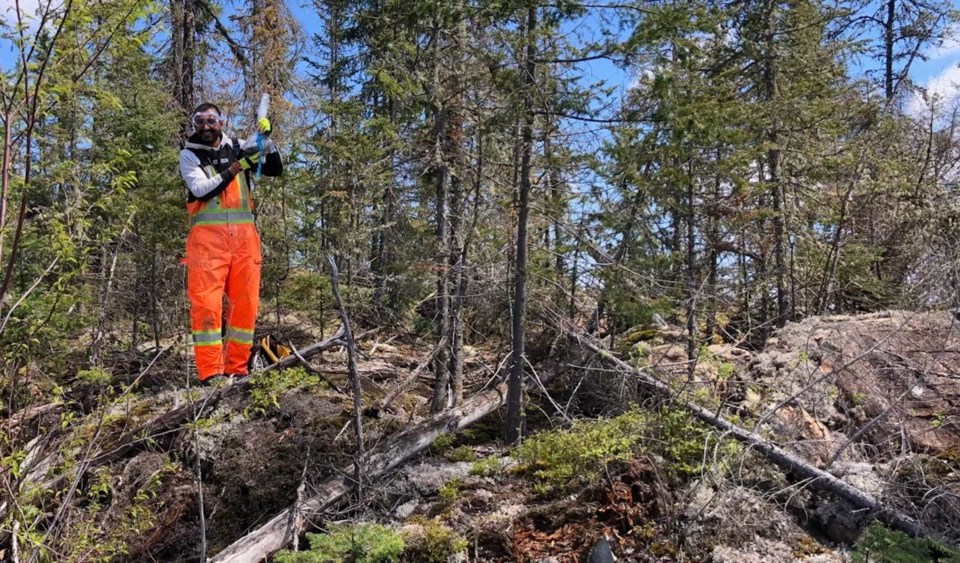A little bit of Mark Selby and Canada Nickel appears to be rubbing off on an exploration startup company in the Timmins mining camp.
EV Nickel hopes to replicate the marketing success of Canada Nickel’s Crawford Project by proving up a low-grade, large-tonnage nickel resource at its Shaw Dome Project, 25 kilometres southeast of the city.
The Toronto company recently released some promising early assay results from last summer’s drilling program that show a new zone of nickel mineralization at the CarLang area of its enormous 30,000-hectare exploration property.
In a news release, management said based on the results they’ve gotten back from the first four of 28 drill holes, CarLang could be a potential low-grade, big-tonnage nickel resource. They believe it's comparable to Canada Nickel’s more than one-billion-tonne Crawford deposit, situated 40 kilometres north of Timmins, which has an average grade at 0.24 per cent nickel.
With two holes from CarLang grading at 22 per cent nickel, the company maintains it's a harbinger of good things to come. More drill results will trickle in from the assay lab in the coming weeks before Christmas. At CarLang, EV Nickel said it has only drilled a small 1.4-kilometre portion of a 10-kilometre trend.
Want to read more stories about business in the North? Subscribe to our newsletter.
In attempting to build a nickel business at the Shaw Dome, the company said it's pursuing a “two-track” development strategy that combines a low grade, bulk tonne feature that is CarLang with a higher grade deposit on the property, dubbed the Langmuir W4 Zone.
“This new large-scale CarLang A Zone combines nicely with the high-grade business to the south, anchored by the W4 Zone, and positions us for our goal of supplying the rapidly expanding EV (electric vehicle) battery sector,” said EV Nickel President-CEO Sean Samson in a statement.
The Shaw Dome property hosts two nickel deposits that were mined in the 1970s and 1990s.
EV Nickel arrived on the Timmins scene last year, picking up an historic resource in the Langmuir W-4, which contains 700,000 tonnes of nickel grading at 1 per cent, the kind of grade that, Samson said in a recent webcast, can be turned into a mine.
The company began immediately drilling to confirmthis nickel mineralization existed and reported some encouraging high-grade hits along the way.
Sign up for the Sudbury Mining Solutions weekly newsletter here.
A pivot point for EV Nickel will be early next year when they intend to release two mineral estimates, one for W4 and a second for CarLang.
As the company name suggests, EV Nickel wants to catch the attention of customers in the North American electric vehicle and battery manufacturing space to address the coming critical minerals supply crunch.
And like many savvy nickel junior companies, EV is making the case for the production of Clean Nickel ™, having trademarked it marketing purposes.
This involves some long-range plans to introduce some value-added manufacturing to a potential Timmins-area mining operation by using a bio-leaching process that the company is currently lab testing to figure out the metal recoveries.
Bio-leaching is a low cost and environmentally friendly alternative to the smelter process and uses native bacteria, already in the soil at the Shaw Dome, to extract nickel and other valuable minerals out of the nickel concentrate. This would create a more ready-made product for the car battery manufacturers.




